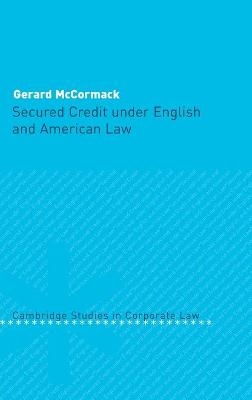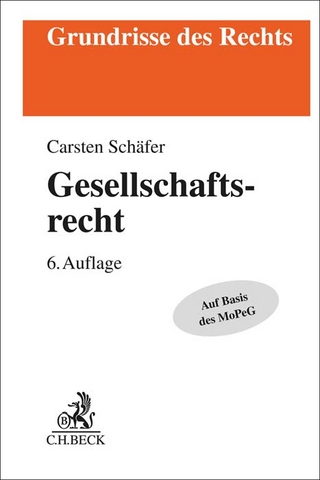
Secured Credit under English and American Law
Seiten
2004
Cambridge University Press (Verlag)
978-0-521-82670-9 (ISBN)
Cambridge University Press (Verlag)
978-0-521-82670-9 (ISBN)
Under English Law it is possible to create security over almost any asset, but the law is considered to be unsatisfactory. McCormack examines the law in England, highlighting its weaknesses. He uses Article 9 of the American Uniform Commercial Code as a reference point. Contains the text of Article 9.
Secured Credit drives economic activity. Under English Law it is possible to create security over almost any asset, but the law is widely considered to be unsatisfactory for several reasons, including a cumbersome registration system, a preoccupation with formalistic distinctions and the lack of clear and rationally-determined priority rules. Gerard McCormack examines the current state of English law highlighting its weaknesses. He uses Article 9 of the American Uniform Commercial Code as a reference point: this Article has successfully serviced the world's largest economy for over 40 years and is increasingly used as the basis for legislation by Commonwealth jurisdictions including Canada and New Zealand. The Law Commission has suggested the enactment of similar legislation in England. In addition, McCormack considers if there really is a case for the priority of secured credit, as well as if there are other international models to draw upon. Contains the text of Article 9.
Secured Credit drives economic activity. Under English Law it is possible to create security over almost any asset, but the law is widely considered to be unsatisfactory for several reasons, including a cumbersome registration system, a preoccupation with formalistic distinctions and the lack of clear and rationally-determined priority rules. Gerard McCormack examines the current state of English law highlighting its weaknesses. He uses Article 9 of the American Uniform Commercial Code as a reference point: this Article has successfully serviced the world's largest economy for over 40 years and is increasingly used as the basis for legislation by Commonwealth jurisdictions including Canada and New Zealand. The Law Commission has suggested the enactment of similar legislation in England. In addition, McCormack considers if there really is a case for the priority of secured credit, as well as if there are other international models to draw upon. Contains the text of Article 9.
Gerard McCormack is Professor of Law at the University of Manchester.
Preface; List of journal abbreviations; 1. The essence and importance of security; 2. Security rights under English Law; 3. An overview of Article 9 of the Uniform Commercial Code; 4. Implications of Article 9 type reforms for the English law of Security Interests; 5. Notice filing versus transaction filing; 6. Retention of Title Clauses under English law and Article 9; 7. Receivables financing; 8. Security interests in deposit accounts, investment property and insurance policies; Appendix: text of Article 9.
| Erscheint lt. Verlag | 14.6.2004 |
|---|---|
| Reihe/Serie | Cambridge Studies in Corporate Law |
| Verlagsort | Cambridge |
| Sprache | englisch |
| Maße | 160 x 235 mm |
| Gewicht | 872 g |
| Themenwelt | Recht / Steuern ► Allgemeines / Lexika |
| Recht / Steuern ► EU / Internationales Recht | |
| Recht / Steuern ► Wirtschaftsrecht ► Gesellschaftsrecht | |
| Recht / Steuern ► Wirtschaftsrecht ► Handelsrecht | |
| Wirtschaft ► Betriebswirtschaft / Management | |
| ISBN-10 | 0-521-82670-5 / 0521826705 |
| ISBN-13 | 978-0-521-82670-9 / 9780521826709 |
| Zustand | Neuware |
| Informationen gemäß Produktsicherheitsverordnung (GPSR) | |
| Haben Sie eine Frage zum Produkt? |
Mehr entdecken
aus dem Bereich
aus dem Bereich
Grundkurs - Materielles Recht & Klausurenlehre, Lernen mit Fällen
Buch (2024)
Richard Boorberg Verlag
21,50 €


